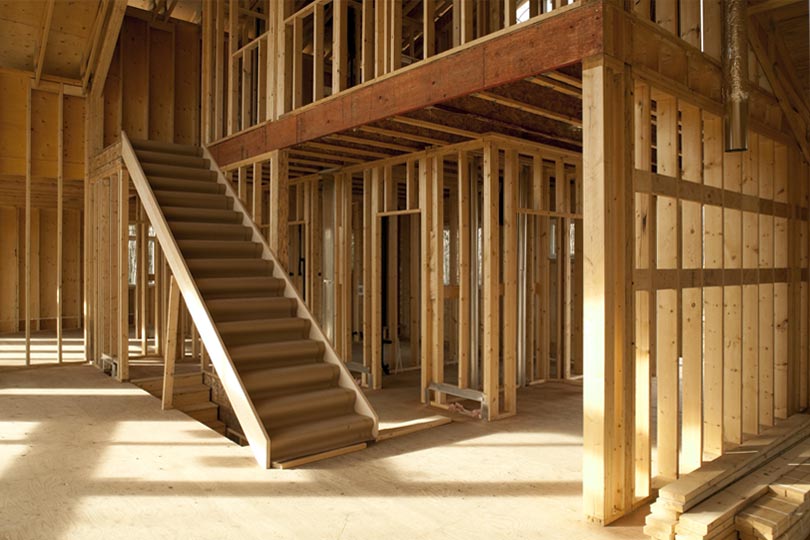Getting A Better Interest Rate On Your Construction Loan

Construction loans are typically more expensive than purchase loans for existing construction, and finding the most competitive mortgage loan rate is an important part of making smart home loan choices.
What do you need to do to find the best interest rates? The most obvious thing to start with is your FICO scores. A lender will offer you a rate based on your creditworthiness, and knowing that in advance is a good thing.
But this is basic advice. What about more advanced ideas?
Shop Around For A Lender
Many finance-related websites, including Forbes.com, advise potential borrowers about finding a lower rate. That advice includes shopping around for a One-Time Close lender that can help. Not all lenders offer the same options, rates, and terms. You should definitely search hard for the right single-close lender for you.
You should also consider various strategies to help you get to a lower interest rate.
Forbes advises you to ask the lender about your choices for larger down payments, rate lock and float-down options, whether you can refinance the loan to a lower interest rate, and under what conditions you may be permitted to do that.
Some aren’t sure about the Forbes advice to refinance. These borrowers may feel refinance loans are a non-starter at press time due to higher interest rates. But those conditions won’t last forever.
Other Advice
Advice from Investopedia about construction loan rates includes recognizing that construction loan interest rates may vary “based on whether you have a construction loan to finance just the construction period or whether you have a combined single close loan that blends the construction and the permanent mortgage.”
Why? According to Investopedia, construction-only loans are a bigger risk for the lender. Rates for these loans are”...typically at least 5% higher than traditional permanent mortgage rates to buy an existing home.”
In other words, a single-close construction loan may be the more attractive option for lenders and borrowers alike due to the lower risk.
What the housing market seems to need (where rates are concerned) is time. Home loan interest rates have not moved as low (in the earliest days of 2024) as they might later on. Monitoring mortgage rate trends as you plan and save for your loan is smart.
Want More Information About One-Time Close Loans?
We have extensively researched the FHA (Federal Housing Administration) and the VA (Department of Veterans Affairs) One-Time Close Construction loan programs.
We have spoken directly to licensed lenders that originate these residential loan types in most states, and each company has supplied us with the guidelines for their products. We can connect you with mortgage loan officers who work for lenders who know the product well and have consistently provided quality service.
If you are interested in being contacted by a licensed lender in your area, please send responses to the questions below. All information is treated confidentially.
OneTimeClose.com provides information and connects consumers to qualified One-Time Close lenders to raise awareness about this loan product and to help consumers receive higher-quality service.
We are not paid for endorsing or recommending the lenders or loan originators and do not otherwise benefit from doing so. Consumers should shop for mortgage services and compare their options before agreeing to proceed.
Please note that investor guidelines for the FHA and VA One-Time Close Construction Program only allow for single-family dwellings (1 unit) – and NOT for multi-family units (no duplexes, triplexes or fourplexes).
In addition, the following homes/building styles are not allowed under these programs: Kit Homes, Barndominiums, Log Cabin Homes, Shipping Container Homes, Stilt Homes, Solar (only) or Wind Powered (only) Homes.
Contact Us: Send Us Your Request – Spam Safe - FHA / VA One-Time Close
Please send your email request to [email protected] which authorizes OneTimeClose.com to share your personal information with one mortgage lender licensed in your area to contact you.
1. Send your first and last name, e-mail address, and contact telephone number.
2. Tell us the city and state of the proposed property.
3. Tell us your and/or the Co-borrower’s credit profile: Excellent – (680+), Good - (640-679), Fair – (620-639), or Poor- (Below 620). 620 is the minimum qualifying credit score for this product.
4. Are you or your spouse (Co-borrower) eligible veterans? If either of you is an eligible veteran, down payments as low as $0 may be available up to the maximum amount your debt-to-income ratio per VA will allow – there are no maximum loan amounts as per VA guidelines.
Most VA lenders will go up to $1,500,000 and review higher loan amounts on a case-by-case basis. If not, the FHA down payment is 3.5% up to the maximum FHA lending limit for your county.
Do you know what's on your credit report?
Learn what your score means.

July 26, 2024The Federal Housing Administration (FHA) offers qualifying borrowers the option to build a home from the ground up using a Single Close FHA Construction Loan. This program, also known as a One-Time Close construction mortgage, allows borrowers to finance the construction of a new home and convert it into a permanent mortgage with just one closing, streamlining the often complex process of building a house.
July 19, 2024VA One-Time Close construction loans help qualifying veterans build homes they will own and occupy once the construction phase is complete. One-time close loans, or construction-to-permanent loans, combine construction and permanent financing into a single closing procedure. VA One-Time Close mortgages have no VA-required down payment or mortgage insurance, making them attractive options for qualifying borrowers.
July 12, 2024When planning a construction loan, you have many options. For example, do you want to buy land with a loan to build the house? Or do you already own a parcel suitable for the construction project? There are many other choices to make with home loans, but some don’t necessarily apply to construction mortgages.








